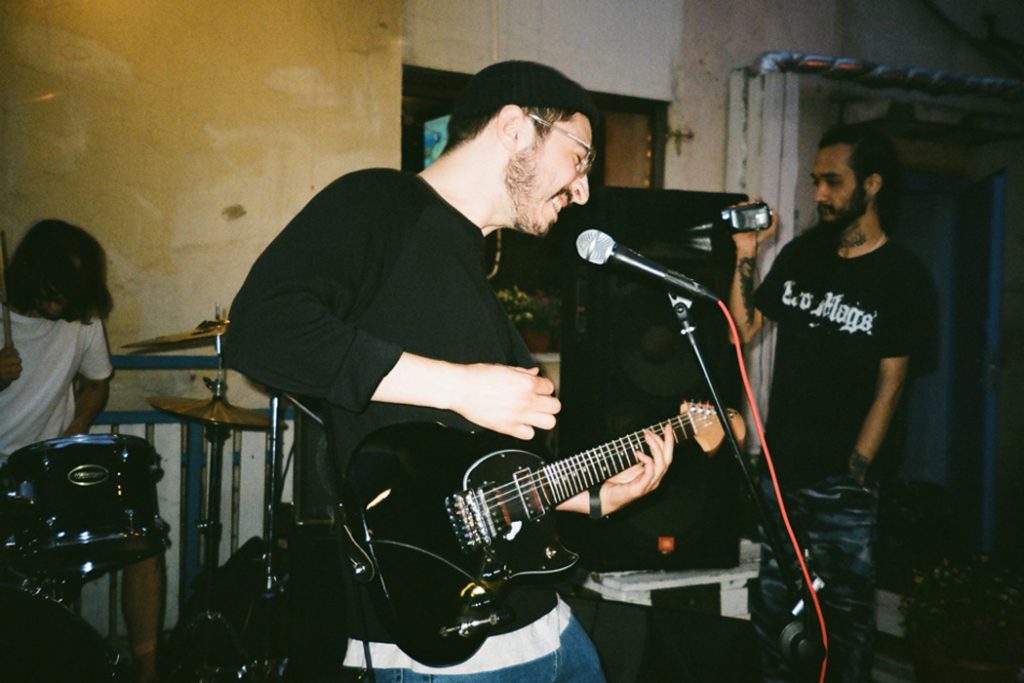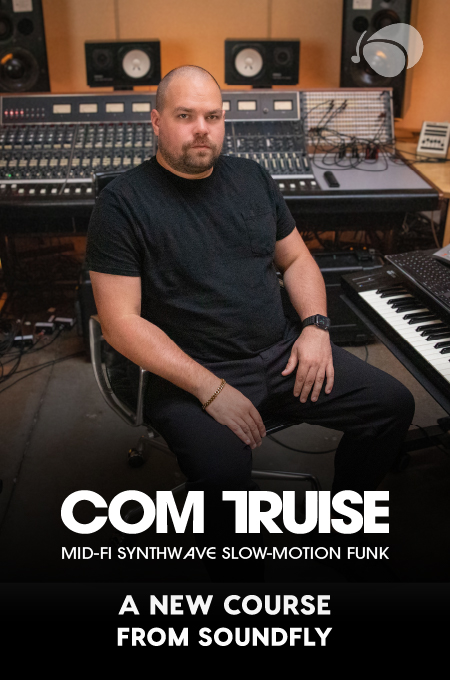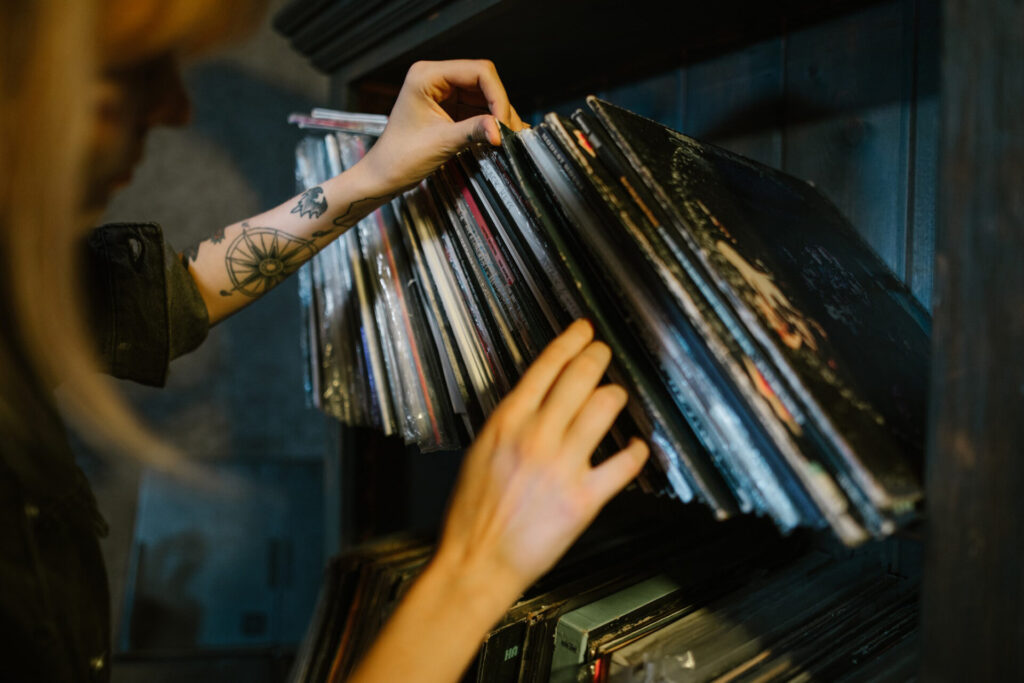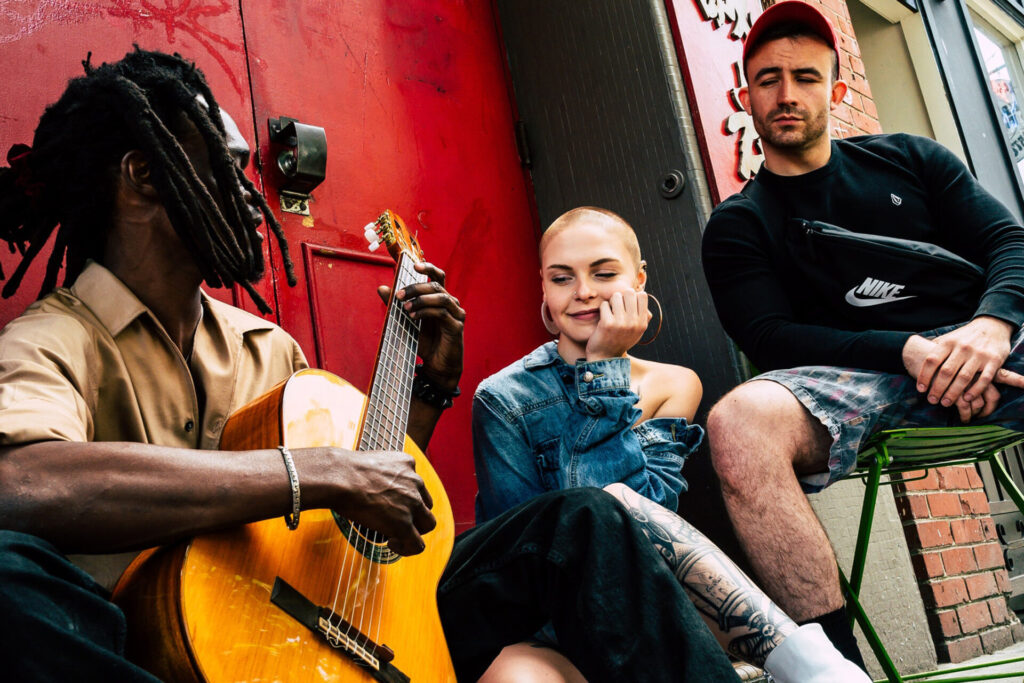+ Our brand new course with The Dillinger Escape Plan’s Ben Weinman teaches how to make a living in music without making sacrifices. Check out The Business of Uncompromising Art, out now exclusively on Soundfly.
For some unestablished musicians, the thought of going from making music in a bedroom or garage to playing on stage in front of strangers seems more like a Grand Canyon’s wide leap than a seamless transition. Even before the thought of potential nervousness over performing live for the first time sets in, there are things to consider like how to build your set, where to play, and who to get in touch with about booking. This can indeed be a tricky transition, but luckily, it’s one you’ll only have to make once.
Here are a few handy tips for how to book your own local shows for the first time, starting with some basics that you may or may not be aware of.
Develop performance experience in low-pressure environments.
Before you attempt playing around town seriously, you should consider preparing yourself by playing in front of people any way you can. House shows, open mic nights, busking — these are all low-pressure ways to discover your strengths and weaknesses as a performer.
You might have promising music and loads of enthusiasm, but none of that matters much when you’re on stage for the first time and don’t know what to expect. Building performance experience can also give you more confidence and credibility throughout the booking process, and you’ll thank yourself later.
Make sure you have recorded music to include with your pitch.
First impressions are important in music, so how you choose to introduce yourself to your local venues is a big deal. If you shoot off a quick email asking to play a show without having at least a few songs to share, you’re not going to be taken seriously. Recorded music is crucial in helping local promoters and talent buyers understand what your band sounds like and how you’d fit on a potential bill.
But here’s the good thing. Before you go spending $6,000 on a professional studio, you don’t need a pristinely recorded full-length album under your belt at all. Demos are fine, but try to get a decently home-recorded and mixed couple of tracks together whenever possible. If it doesn’t sound perfect, that’s fine, just don’t print and sell copies of those songs yet. Just don’t think about booking local shows until you’ve got music to share.
+ For tips, strategies, and resources to help you get on tour faster and smarter, check out Soundfly’s popular free course, Touring on a Shoestring.
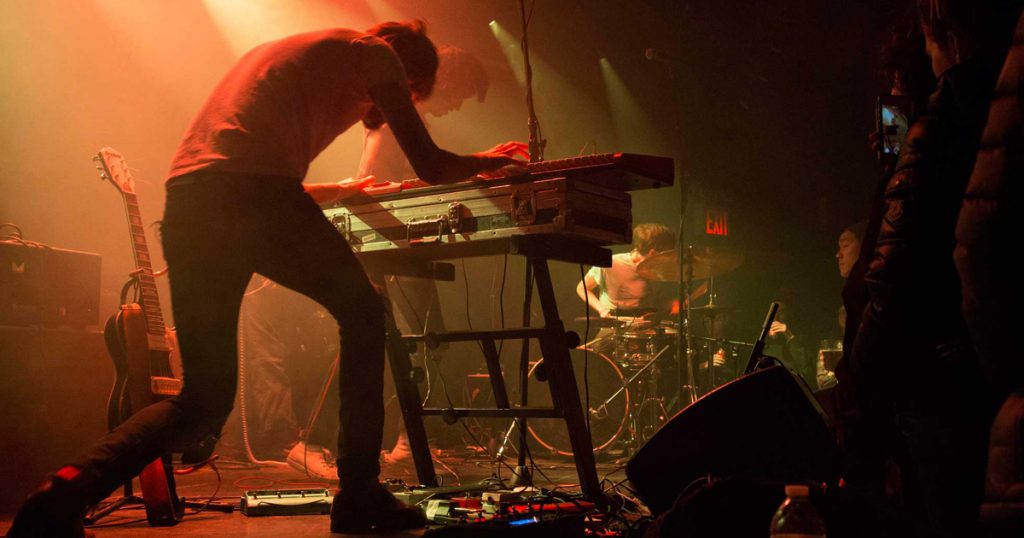
Build a list of suitable local venues and contacts.
You might feel like your project is ready to tackle your town’s biggest and hippest venues, but the folks who book talent at those places almost certainly feel otherwise. Venues demand that the acts who frequent their stages bring in lots of people because their business models depend on it. But even if you’re certain you’ll be able to draw huge crowds for your first local shows, you should still look for modest places to play when you’re just starting out.
These are your first legitimate live shows after all, and it’s not likely you’ll hit it out of the park your first couple of tries.
First, create a list of small, reasonable venues to reach out to, and then write down the names and email addresses for the people who book music for those places (virtually all venues now book talent through email). Instead of putting all your booking hopes in one basket, writing down multiple venue options will give you the best chance at booking shows. Again, instead of focusing on the best local venues, you’ll need to start building your reputation anywhere you can.
Create a thoughtful introduction and proposition email pitch.
Believe it or not, professionalism goes a long way when it comes to booking shows or tours. If you shoot off a poorly written email with the promise of bringing 500 fans out to your first show, your email will be promptly mocked and/or deleted. Be thoughtful and measured about how you first introduce your band. and be honest.
Provide a link to stream your music, talk about who you are, what your music sounds like, and describe what you can realistically bring to the table when it comes to a local draw. If it’s 10-20 people, say 10-20 people. Inflating the numbers can ruin the vital first impressions you make with venues.
Instead of trying to headline or open a show on a weekend (you’re not likely to get those valuable spots in the calendar until you’ve proven yourself), simply say that you’re a new band eager for live performance opportunities and ask to be considered for future shows. Starting out as the low music project on the totem pole, your emails might get ignored, or you might get asked to open a Tuesday night show opening for an artist you’ve never heard of. Persistence pays off here, but only if your communication is professional and honest.
Once you’ve booked your first show.
Congrats! Holy schnikes that was fast. Now that your project is booked, it’s time to get ready for the show.
You’ll probably be asked to stick to a short set time of between 20 and 30 minutes. Create a tight set of songs that showcases your music and creates some kind of momentum, and don’t play covers unless you’ve specifically cleared it with the venue. Some music venues aren’t legally set up for their bands to perform covers.
Good luck! I’m so proud of you!
Rev Up Your Creative Engines…
Continue your learning with hundreds of lessons on songwriting, mixing, recording and production, composing, beat making, and more on Soundfly, with artist-led courses by Kimbra, RJD2, Com Truise, Kiefer, Ryan Lott, and Ben Weinman’s The Business of Uncompromising Art.
